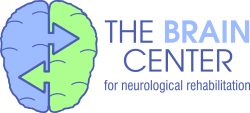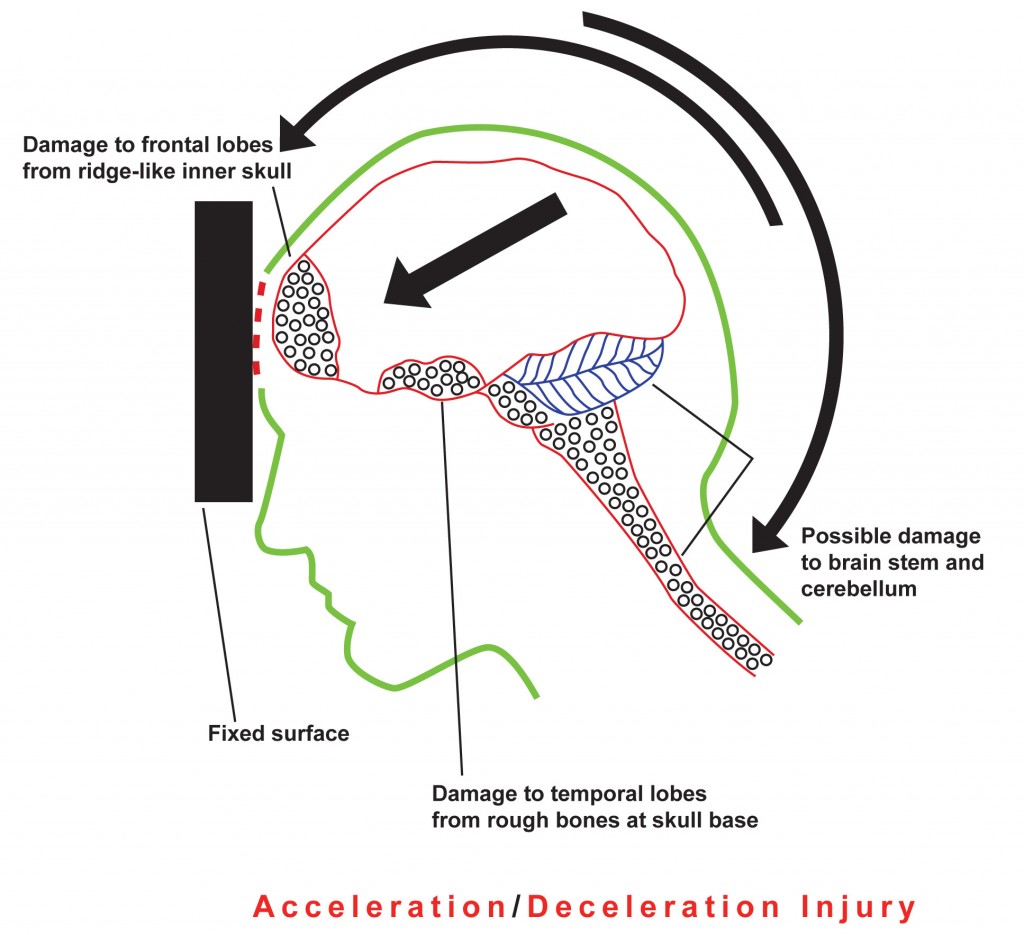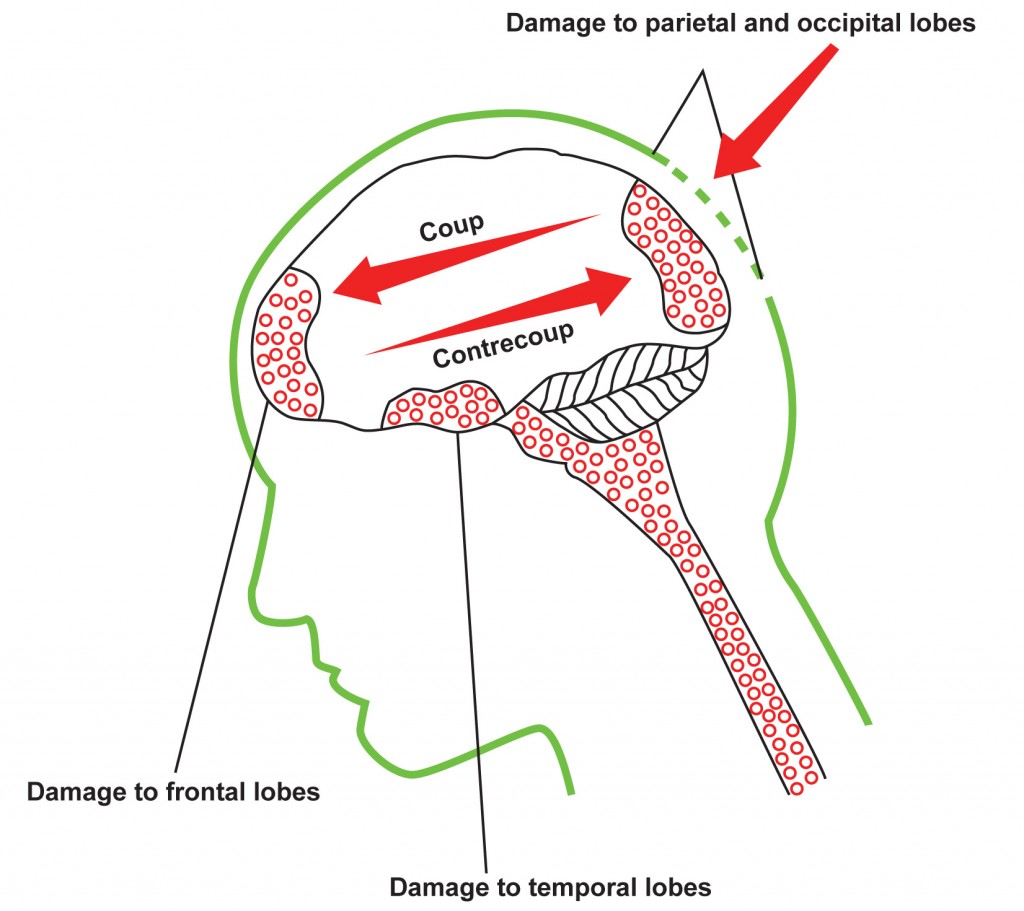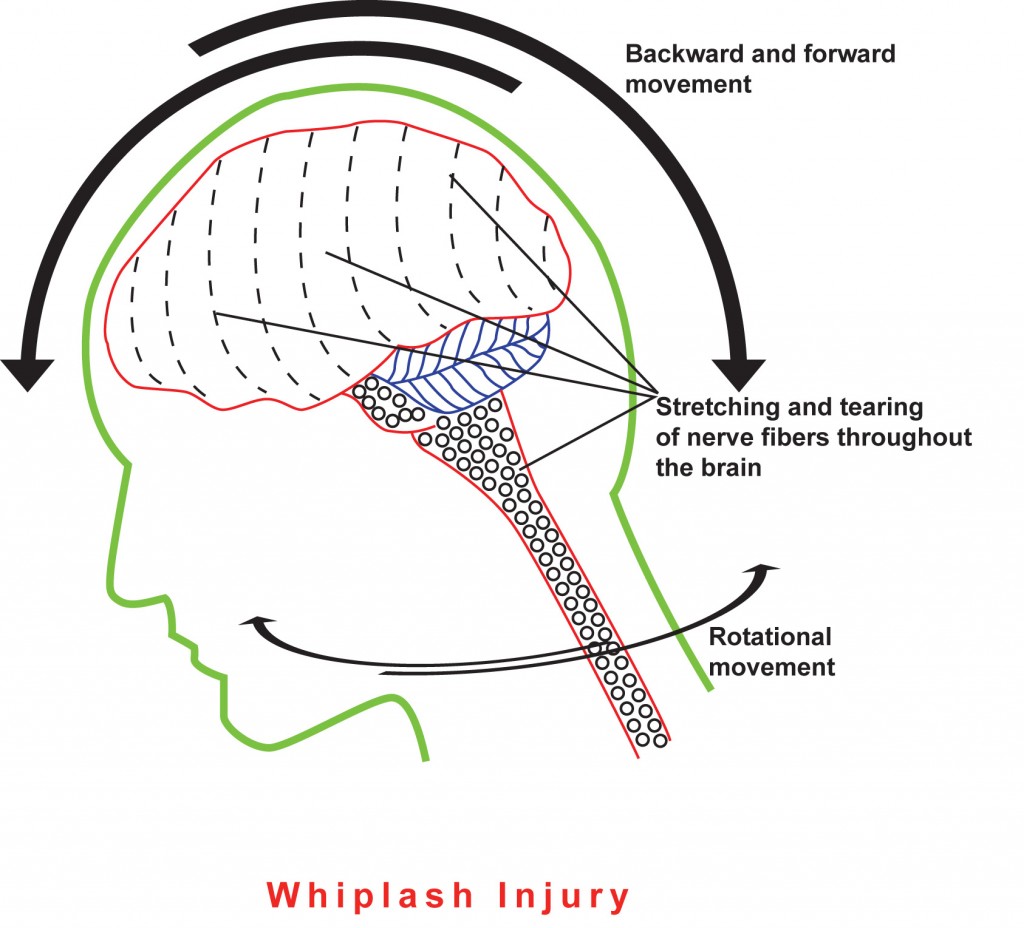You look in the mirror and everything seems to be the same, but deep down inside you realize that there is a piece of you that died. You feel like you have to work harder just to keep up with the daily rigors of life. Everything seems like a struggle to you. It’s a struggle coming up with the energy to go to work, clean your house, get your children dressed, fed and bathed. You feel guilty about always needing to take naps. Often, you feel like you miss or have a hard time following conversations. These are the thoughts that go through the mind of a person suffering from a Mild Traumatic Brain Injury.
A traumatic brain injury can occur from a variety of causes.
50% Automobile Accident
21% Falls
12% Physical Abuse, Assaults, Violence
10% Sports and recreational Accidents
There are two types of Traumatic Head Injury
Open head injury
Penetration of the skull
Closed Head Injury
No penetration to the skull
Effects tend to be broad (diffuse)
One type of direct contact force injury involves a rapid acceleration/deceleration injury. When head is moving at a rapid rate and suddenly comes to a stop after striking an immobile object.
A second type of direct contact force MTBI is the coup/contre coup (literally, “blow/counterblow”) injury. It is when a moving object (strikes the head causing a dent and moving the skull interiorly.
The brain is bruised at the site where the brain was hit by this object as well as on the opposite side of the brain where it has been thrown about and struck by the skull.
DIFFUSE MTBI
A mild blow to the head that causes unconsciousness for a brief moment, but does not cause a disruption in nerve impulses. An example of a Diffuse MTBI would be a whiplash or a rapid snapping back and forth of the head and neck causing the brain to move in two or more different directions at once. This stretches and tears nerve cells all over the brain interfering with their ability to communicate with each other.
You may wonder how a brain injury that can cause all of these symptoms and change your life so significantly can be called “mild”. For those of you who feel the effects of your brain injury in every aspect of your life, this classification hardly seems fair. After all, it surely doesn’t feel “mild” to you.



